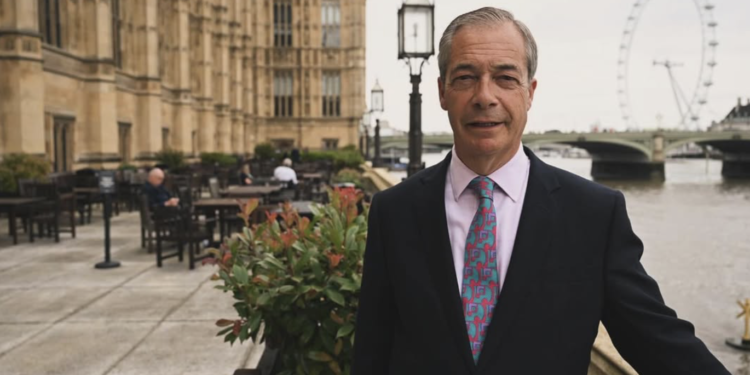Nigel Farage will put the story of Lucy Connolly, a British woman recently released from prison after a controversial social media post, at the centre of his testimony to key allies of Donald Trump in Washington next month.
The Reform UK leader is due to appear before the House Judiciary Committee on 3 September, where he’ll warn senior US lawmakers about what he calls mounting threats to freedom of expression in Britain. Farage confirmed he intends to highlight Mrs Connolly’s case as “a very central point of what I’m discussing.”
Lucy Connolly, a former childminder, was released last week after serving more than 300 days of a 31-month sentence. She was jailed last year for a post on X (formerly Twitter) in the aftermath of the Southport attacks, during a period of intense national outrage over the murders and anxieties about illegal immigration. In her post, Connolly called for mass deportations and urged: “set fire to all the f—ing hotels full of the b——s for all I care, while you’re at it, take the treacherous government politicians with them.” She deleted the message within four hours but not before it had been viewed more than 310,000 times. Connolly pleaded guilty to inciting racial hatred.
After her release from HMP Peterborough last Thursday, Connolly described herself as a political prisoner. She remains on licence for the rest of her sentence, and is unlikely to attend the US hearing, as standard licence conditions prevent her from travelling abroad without permission.
Farage’s appearance comes amid mounting concerns in Washington over Britain’s approach to free speech. The Trump administration, and several influential allies in Congress, have criticised new online safety laws and are “monitoring the situation with great concern.” Three members of the House Judiciary Committee, including its chairman Jim Jordan, said they were “shocked” by what they learned during a recent visit to the UK.
Connolly’s case has become a rallying point for critics of the Government’s approach to online speech and crime. Her sentence has sparked controversy, with some commentators drawing comparisons to punishments for other offences. Protests over the use of hotels to house asylum seekers erupted in dozens of towns and cities on Saturday, highlighting the charged atmosphere.
Farage, who has been outspoken in his criticism of Connolly’s treatment, said on Thursday that she has become “a symbol of Keir Starmer’s authoritarian, broken, two-tier Britain.” He has insisted that Connolly should not have been sent to prison for her post.
US Vice-President JD Vance recently warned of a “very dark path” of censorship during a visit to London, urging the Labour Government not to curb free expression in the name of safety. “Western nations, including Britain, have become a little too comfortable with censoring rather than engaging with a diverse range of opinions,” Vance said.
Prime Minister Sir Keir Starmer has defended both his Government’s record and the decision to prosecute Connolly. Addressing MPs in May, he said: “I am strongly in favour of free speech – we’ve had free speech for a very long time and we protect it fiercely – but I’m equally against incitement to violence against other people. I will always support the action taken by our police and courts to keep our streets and people safe.”
As Farage prepares to take Britain’s free speech debate to Washington, the case of Lucy Connolly looks set to become a transatlantic flashpoint in the battle over where the line should be drawn.

































